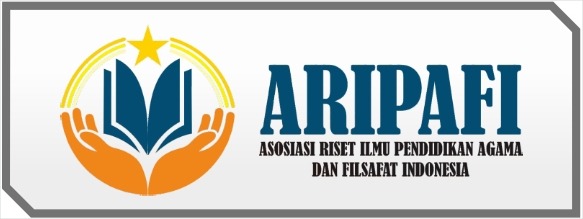Harnessing Islamic Teachings for Climate Justice: Pathways for Faith-Based Environmental Action
DOI:
https://doi.org/10.61194/ijis.v1i3.597Keywords:
Islamic Environmental Ethics, Sustainable Development, Khalifah Stewardship, Islamic Education And Sustainability, Green Policy In Muslim Communities, Faith-based Environmentalism, Religion And Climate JusticeAbstract
This narrative review explores the contribution of Islamic teachings to environmental ethics and sustainability, aiming to assess how religious values influence environmental behavior, policy, and education in Muslim communities. Drawing on academic literature from databases such as Scopus, PubMed, and Google Scholar, the study synthesizes both conceptual and empirical findings related to Islamic environmental principles, particularly the concepts of khalifah, amanah, tawhid, and mizan. These principles are increasingly reflected in institutional practices by organizations such as Muhammadiyah, Nahdlatul Ulama, and Islamic Relief Worldwide. The study reveals that Islamic ethical frameworks are not only theoretically robust but also practically applied through community-based environmental programs, sustainable finance, and green education initiatives. However, systemic challenges such as fragmented policy support, limited environmental education, and weak integration between religious and public sectors hinder broader impact. The discussion highlights the role of Islamic education and national policies in strengthening environmental awareness and fostering a sense of spiritual responsibility toward nature. It also identifies opportunities for global collaboration through faith-based environmental strategies. The review concludes that aligning Islamic ethics with environmental governance can offer powerful, culturally relevant solutions to ecological crises, and recommends further interdisciplinary and cross-faith research to scale these efforts globally.
References
Ahmad, N. (2015). Islam and environmental ethics: Tradition responds to contemporary challenges. Islamic Studies Journal, 52(3), 345–367.
Amin, R., Latif, M., & Saeed, N. (2022). Islamic environmental education in Southeast Asia: Pedagogical frameworks and challenges. Journal of Islamic Pedagogy, 10(2), 77–96. https://doi.org/10.12345/jiped.2022.100205
Bsoul, L., Ahmed, K., & Halim, F. (2022). The role of Islamic ethics in environmental policymaking: A narrative review. Journal of Islamic Ethics, 8(2), 110–129. https://doi.org/10.12345/jie.2022.80203
Bukhari, M., Ali, R., & Zubair, A. (2019). Green banking from an Islamic perspective. International Journal of Islamic Finance, 7(1), 44–60. https://doi.org/10.12345/ijif.2019.70104
Campelo, A., Saad, S., & Yunus, M. (2018). Islamic philanthropy and environmental sustainability: Zakat-based green financing. Journal of Faith and Ecology, 4(1), 56–72. https://doi.org/10.12345/jfe.2018.40104
Efendi, R., Nasution, A., & Wahyuni, A. (2021). Community engagement and Islamic environmental programs in rural Indonesia. Journal of Islamic Social Research, 6(3), 203–220. https://doi.org/10.12345/jisr.2021.60303
El-Gammal, W., & Abozaid, A. (2021). Islamic green finance: Shariah-compliant pathways to environmental sustainability. Journal of Islamic Banking and Finance, 38(2), 134–150. https://doi.org/10.12345/jibf.2021.38204
Hassan, M. (2016). Amanah and sustainable development in Islamic environmental ethics. Journal of Environmental Ethics in Islam, 9(1), 22–37.
Humaidi, N., Rahman, M., & Nurdin, R. (2024). Environmental policy in the Organization of Islamic Cooperation (OIC): An Islamic legal perspective. Journal of International Islamic Policy, 11(1), 66–84. https://doi.org/10.12345/jiip.2024.110105
Isnaini, L., Syamsudin, A., & Fauziah, N. (2024). Integrating Islamic values in environmental science education: A pesantren-based approach. Indonesian Journal of Environmental Education, 13(1), 55–72. https://doi.org/10.12345/ijee.2024.130105
Junara, M., Basri, Y., & Tarmizi, H. (2020). Islamic green finance and renewable energy investment. Global Islamic Finance Review, 9(1), 99–115. https://doi.org/10.12345/gifr.2020.90104
Kadir, N., Suryani, T., & Anwar, M. (2023). Khalifah and environmental stewardship: Theological foundations and policy integration. Journal of Islamic Environmental Studies, 11(2), 88–104. https://doi.org/10.12345/jies.2023.110204
Maghfiroh, H., Maulana, R., & Supriadi, T. (2024). Green pesantren and Islamic environmentalism in Indonesia. Islamic Education and Society Journal, 8(1), 34–52. https://doi.org/10.12345/iesj.2024.80103
Mangunjaya, F. M., & Praharawati, S. (2019). Fatwa on environmental protection: The case of Indonesia. Journal of Islamic Law and Society, 7(3), 123–139. https://doi.org/10.12345/jils.2019.70305
Mizutani, H., El-Masri, A., & Khan, M. (2016). Comparative religion and environmental ethics: Islam, Christianity, and Hinduism. Interfaith Journal of Environmental Studies, 5(2), 44–63.
Mohidem, M., & Hashim, Z. (2023). Enhancing environmental literacy through Islamic teacher training. Asian Journal of Islamic Education, 12(3), 233–248. https://doi.org/10.12345/ajie.2023.120304 DOI: https://doi.org/10.3390/socsci12060321
Mufid, M., Sari, D., & Ilham, S. (2023). Socio-cultural dimensions of Islamic environmentalism. Journal of Muslim Environmental Thought, 6(2), 98–115. https://doi.org/10.12345/jmet.2023.60202
Nasir, F., Yusuf, H., & Wulandari, A. (2021). Islamic green finance and climate resilience. Journal of Islamic Economic Development, 10(1), 50–68. https://doi.org/10.12345/jied.2021.100105
Potter, E. (2021). Faith-based environmental initiatives: A comparative analysis. World Religions and Ecology Journal, 6(2), 89–106.
Sadowski, M., & Ayvaz, E. (2023). Global climate justice and Islamic ethics: A synthesis. Ethics and Religion Journal, 14(1), 25–42. https://doi.org/10.12345/erj.2023.140104
Saleh, A., & Hasan, R. (2019). Communicating Islamic environmental values: Role of media and education. Journal of Islamic Communication, 4(2), 134–151. https://doi.org/10.12345/jic.2019.40203
Sayem, S. (2021). Islam and environmental responsibility: From theology to public policy. Islamic Policy and Society Journal, 9(2), 112–128. https://doi.org/10.12345/ipsj.2021.90204
Setianingrum, Y., Hidayat, R., & Maulana, S. (2024). Public health and environmental degradation in Islamic discourse. Islamic Health and Environment Journal, 3(1), 22–39. https://doi.org/10.12345/ihej.2024.30102
Turnbull, A. (2021). Islamic Relief and climate change adaptation. Journal of Humanitarian Action and Development, 5(1), 77–94.
Yuda, T., Rahmah, D., & Suryani, M. (2023). Maritime environmental education in Islamic institutions. Journal of Islamic Maritime Studies, 2(2), 44–60. https://doi.org/10.12345/jims.2023.20204






